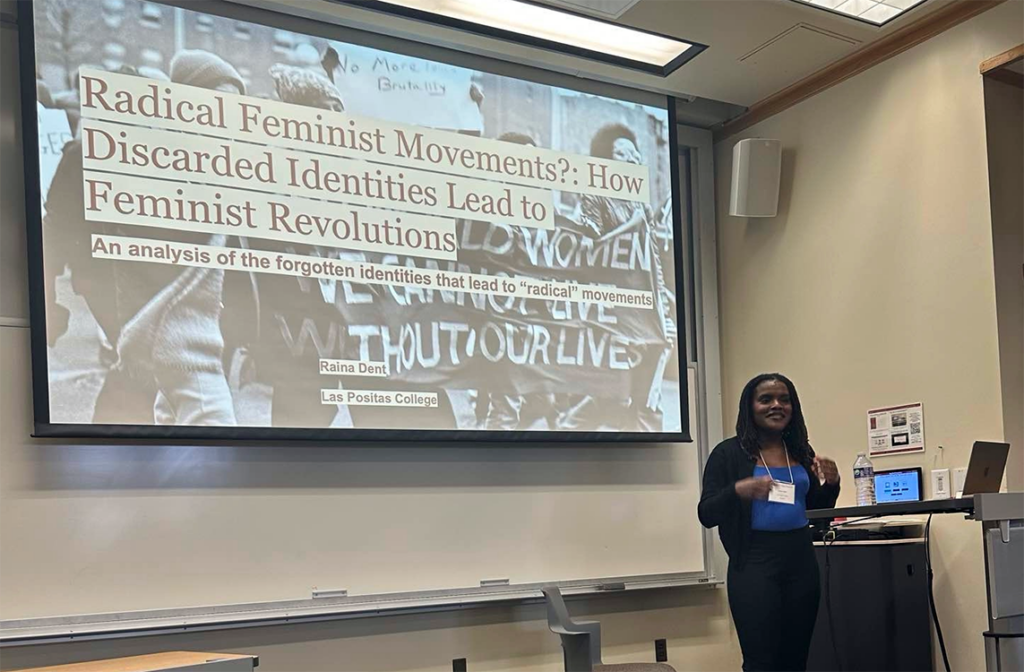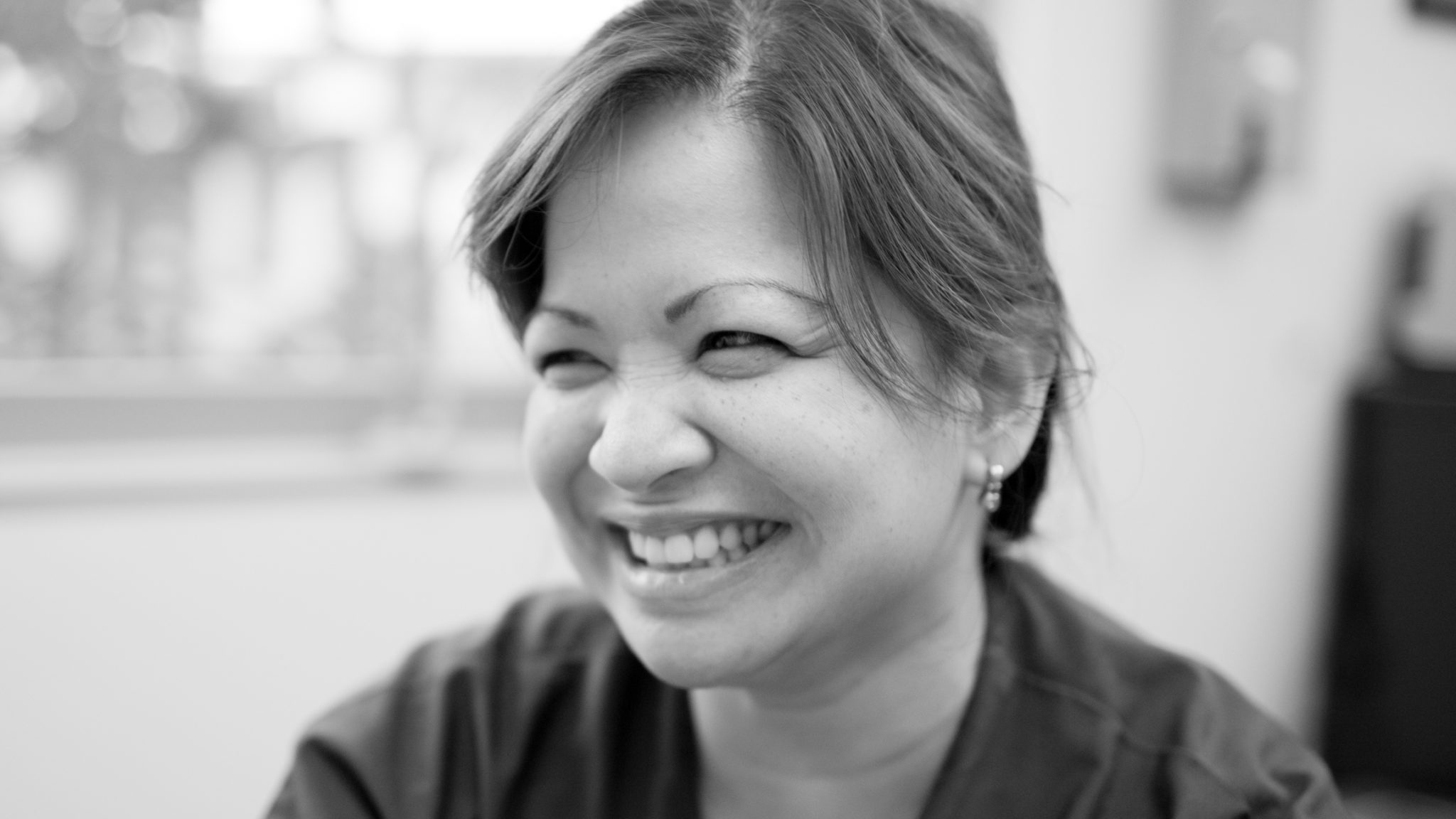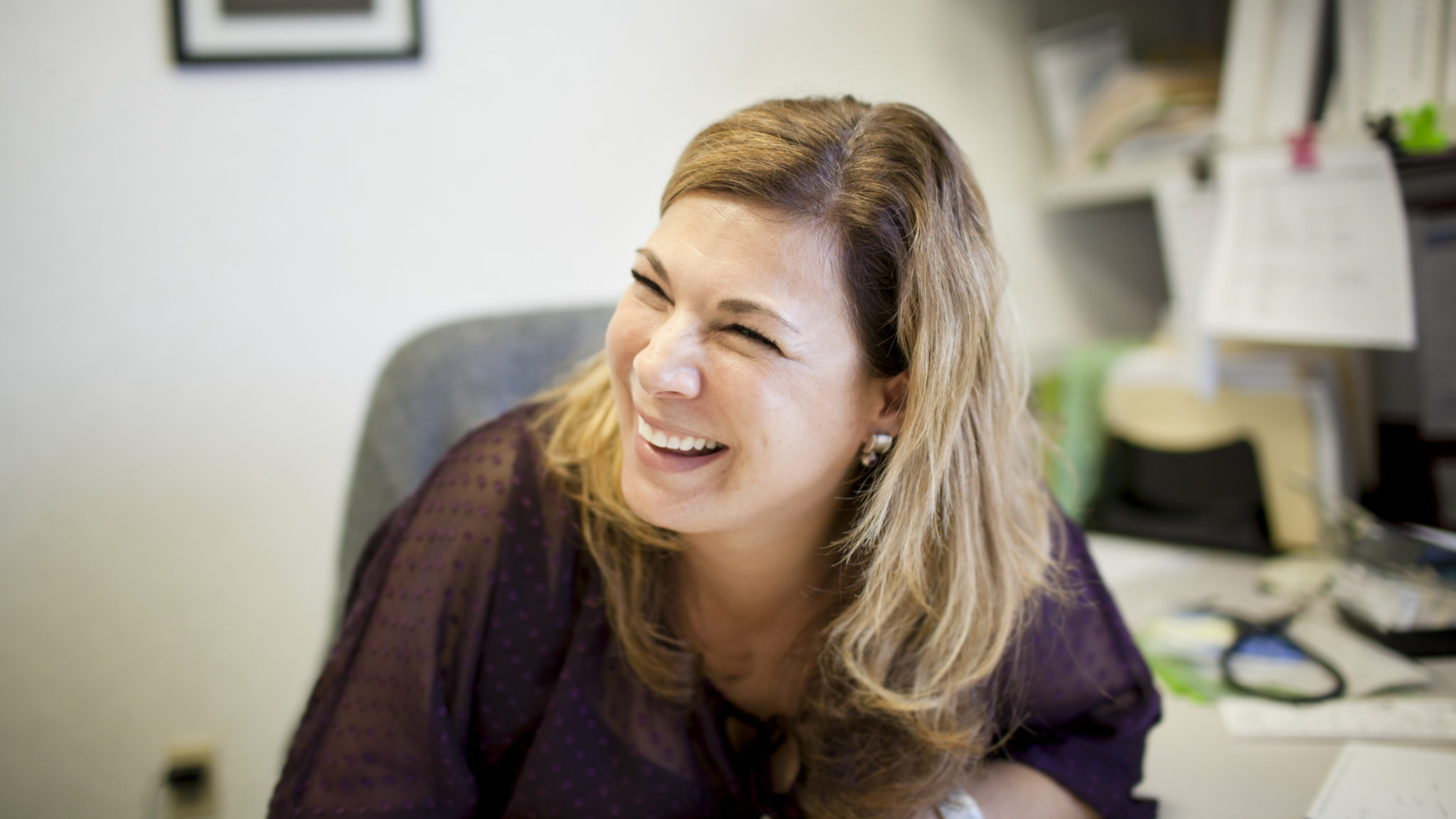Raina Dent was born in Alabama two minutes before her twin sister Reese. Her primary place of residence as a kid was a state up in Memphis. And, as a sixth grader, she and her family moved again – this time to Tracy, California.
The “home of the blues,” though, is uniquely special to Dent. “I think if I could describe Memphis in one word, it’d be a lot of grit,” she said.
She credits it for inspiring her work ethic. The Tennessee city sheltered a different kind of hustle culture than what’s familiar to Californians. It wasn’t the kind of culture “associated with, like, capitalism and working yourself to the bone,” Dent said. It was about determination and sacrifice.
The medley of gritty, motivated, sacrifice-making people that made up the Memphis of Dent’s childhood centered on her mother. Merle Johnson instilled in Dent a blueprint for equilibrium. She provided an example of balance.
Growing up, Dent watched her mom start and graduate nursing school. She remembers – from around ages four to seven – her mother’s routine of balancing classes, family time and work.
When she did work in the South, Johnson made “probably a fourth of what I make now,” she said. “You work harder, you work longer hours – sometimes you’d get a 12-hour shift with no break.” Add to that fewer legal protections for nurses, and you have solid grounds for wanting to leave. “Here, specifically the Bay Area, nursing is like, top tier,” Johnson said.
Johnson wanted more for herself and her children. She wanted them to experience a life that didn’t stagnate and permanently settle in one place. She wants her family to see as much of the world as they can.
“We travel a lot as a family,” she said. “We do a lot of things that expose us to different cultures and different ideas.”
So, when Dent was browsing LinkedIn while traveling in Mexico this summer, it wasn’t in a capitalistic, “work yourself to the bone while on vacation” kind of way. She’s not the type to use LinkedIn as a primary social media source – but she is responsive. And, as a frequent-flier, she can’t help the occasional work/vacation crossover. It’s a part of her balancing act.
In Mexico, she’d gotten a message on the networking app. While there, on Linkedin, she saw an application to the New York Times Corps. It was for “a talent-mentorship program for undergraduates pursuing journalism.” She applied.
The New York Times Corps program pairs 20 college students from across the country with mentors on the NYT staff. It’s mostly virtual, but once graduated, mentees fly to New York City to visit the Times headquarters. Dent didn’t think she’d get in.
She’d only done a year of journalism in high school. As a senior, she wrote for The Zephyr, the Merrill F. West High student newspaper. She’d done an internship with the Tracy Press after that. In her mind, this probably wasn’t enough to warrant consideration for the prestigious program.
Sure, there were other attributes to her resumé that probably helped. Like how she owns a small business selling all things crochet. (It’s called Raina’s Crochet Hook).
She’s also had her research recognized for the Bay Honors Consortium: Dent presented an extensive project “regarding radical feminist movements and basically how these discarded identities lead to the movements we call radical,” for an honors research symposium at Stanford. Other honors work Dent conducted were submitted as well.
LPC political science Joanna Tice Jen encouraged Dent to apply for the Symposium. “She came up with this just fantastic paper about feminist theory and sort of the ways that (it) is informing or not informing politics and feminist activism today,” Tice Jen said.
Everything about Dent made her a “quiet burning flame” to Tice Jen. Her papers. Her thinking. Her theorizing. Her averseness to grandstanding regardless of her evident intelligence. Her sitting in the front row.
“She sat in the front row, and she’s an African American woman in a class of mostly white men,” Tice Jen said. “And just like, totally held her own. As a woman who’s experienced that, you know the kind of character it takes to do that. But I don’t know what that’s like as an African American woman. I imagine it’s harder.”
FOUND A HOME: Honors student Raina Dent didn’t want to attend LPC initially. But it proved “so much more.” (Courtesy of Raina Dent)
Dent – who was surprised when she heard back about an interview – was experiencing “a bit of imposter syndrome,” she said. In August, she found out she’d gotten into the New York Times program. Her mentor is the senior editor at the NYT’s Live desk, Ben Shpigel.
Honors Program coordinator Irena Keller, wasn’t “surprised she was accepted – she’s a great student,” Keller said. “She was active. She was motivated. She did high-quality work. She deserves every single chance she gets, and probably more.”
Johnson agrees. She knows her daughter. She knows how smart Dent is. She knows she can be stubborn, and that she reminds Johnson of herself. She knows Dent is exceedingly fearless. And that “she’ll do great things.”
But to say that Johnson expected her daughter to be working with the New York Times “diminishes her accomplishment,” she said. “Of course I expected it. But she worked hard for it. She works hard for everything she does.”
To open doors and make a name for yourself “I’ve learned that you do have to work twice as hard, often,” Dent said. “Especially if you’re in a community college.”
Las Positas College was an ace in the hole for Dent. As high school graduation neared, she was inundated with options. She had out-of-state scholarships and in-state, private tuition scholarships. The closer that May 2023 day came, the less sure she was about where to go. When money got factored in, LPC was the obvious choice.
On account of attending a two-year, Dent was initially “a little upset.” But LPC was “so much more” than what she’d “imagined community college to be.” The classes are in-depth, and their sizes made working with and learning from professors accessible. Plus, there was an abundance of opportunities and resources.
After graduating from Las Positas, she plans on transferring to Berkeley, USC, UCLA or Stanford. Her ultimate goal is “probably to (be) a lawyer in a newsroom somewhere.”
Currently, though, Dent isn’t just an honors student. She’s also an employed commuter, the editor-in-chief of the Politics and Law Club’s newsletter, and now, of course, a member of the NYT Corps. “It’s just a big balancing act,” she said.
It’s an ability she continually maintains. It’s what Johnson and Memphis taught her. At her home there, she and Reese and her now nine-year-old brother, Reginald Jr., would sit on the couch with Johnson during her time off. MSNBC, CNN or a network in that vein would play. She wasn’t entirely sure what the pundits were talking about, but she knew it interested her.
Johnson called Memphis “white and Black” and “very much segregated.” And it’s a city Dent said is frequently misrepresented as “hopeless and disparate.” But Memphis helped raise her. It planted the seeds for her political fascination. It reinforced the tree of balance and wisdom and love rooted by her mom.
If she could go back there – to the little girl sitting on the couch watching MSNBC – Dent would say: “Write more. Read more. Learn to shut up sometimes and listen to other people. Other than that, keep being passionate and keep your opinions.”
Kid Raina “probably wouldn’t listen. But that’s OK.”
TOP PHOTO: Raina Dent will be mentored by the New York Times, an accomplishment that fits her journey from Memphis. (Photo courtesy of Raina Dent).
Olivia Fitts is the News Editor and Opinions Editor for The Express. Follow her on X, formerly Twitter @OLIVIAFITTS2.





